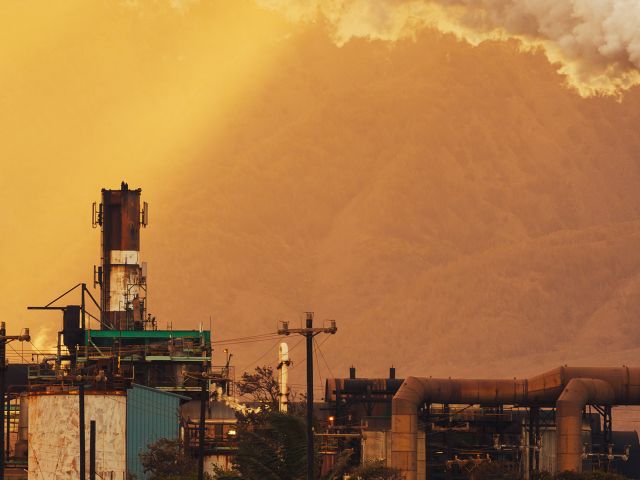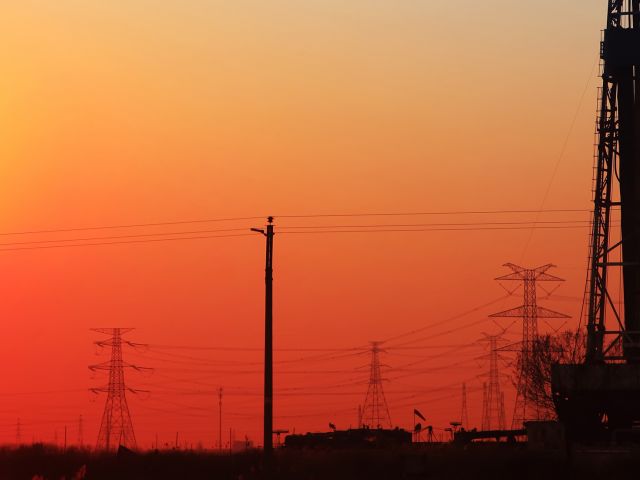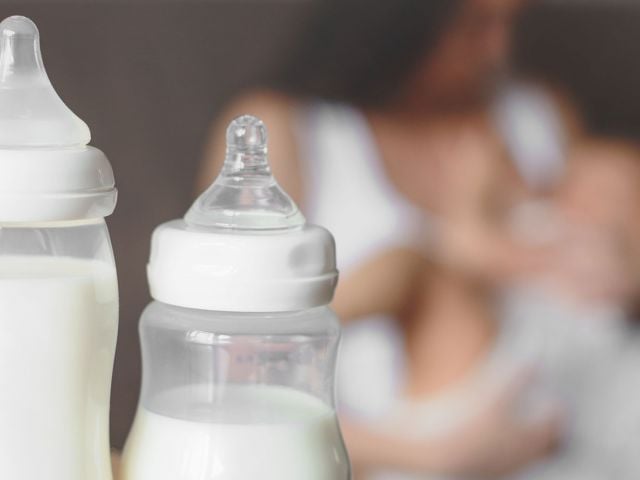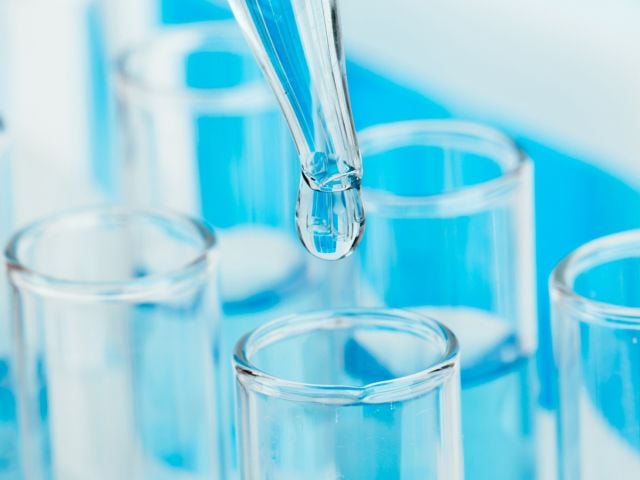Displaying 4537 - 4560 of 7453
Research
Picking Losers: Why Coal and Nuclear Interests Are Desperate for a Ratepayer Bailout
FERC data compiled by EWG show why the Trump administration's friends in the coal and nuclear industries are desperate for a ratepayer bailout: Their plants are losing billions of dollars, and without subsidies to make them competitive with renewable energy and natural gas, utilities are proposing to close 75 coal and nuclear facilities in just three short years.

Research
Toxic Chemicals May Contaminate Oil Field Wastewater Used to Grow Calif. Crops
In the last three years, farmers have irrigated 95,000 acres of food crops with billions of gallons of oil field wastewater possibly tainted with toxic chemicals.

Research
Under New Safety Law, 20 Toxic Chemicals EPA Should Act On Now
The vast catalogue of chemicals that have never been evaluated for safety makes it urgent for the EPA move quickly to tackle the backlog

Research
The Pollution in People
More than 1,400 chemicals and chemical groups are known or likely carcinogens. Through industrial applications, consumer products and food, water and air, Americans are exposed daily to these cancer-causing compounds, which invade the body and build up in blood and urine.

Research
Farm Subsidies in California:
Although cotton and rice constitute a tiny portion of California's nation-leading farm production, those two crops – rather than the state's vast harvest of fruits and vegetables – continue to get the lion's share of federal farm subsidies in the state, according to the latest update of the Environmental Working Group's Farm Subsidy Database.

Research
Drilling Around the Law
In a worst case scenario, the petroleum distillates used in a single well could contain enough benzene to contaminate more than 100 billion gallons of drinking water to unsafe levels, according to drilling company disclosures in New York State and published studies. (NYDEC DSGEIS 2009, Pagnotto 1961) That is more than 10 times as much water as the state of New York uses in a single day. (NYDEC

Research
Pollution in 5 Extraordinary Women
An unprecedented two-year study commissioned by the Environmental Working Group and conducted by four independent research laboratories in the United States, Canada and the Netherlands has documented up to 481 toxic chemicals in the blood of five minority women leaders in the environmental justice movement.

Research
Free Pass for Oil and Gas
Oil and natural gas companies have drilled almost 120,000 wells in the West since 2000, mostly for natural gas, and nearly 270,000 since 1980, according to industry records analyzed by Environmental Working Group. Yet drilling companies enjoy exemptions under most major federal environmental laws.

Research
Toxic Chemicals in Kids' Bath Products
Children's bath products are often marketed as safe and gentle. However, laboratory tests commissioned by the Campaign for Safe Cosmetics found these products are commonly contaminated with formaldehyde or 1,4-dioxane – and, in many cases, both. These two chemicals, linked to cancer and skin allergies, are anything but safe and gentle and are completely unregulated in children's bath products.

Research
America Needs a True Renewable Energy Policy
Finding ways to reduce fossil fuel use and greenhouse gas emissions while producing enough energy to support economic development worldwide is this century's preeminent challenge. We must meet this challenge while simultaneously reducing environmental degradation, poverty and hunger. The United States must make a sustained commitment to invest in and develop renewable energy sources that

Research
Independent Science Panel Rebukes FDA on Toxic Plastic
FDA's advisory Science Board convened a BPA panel to evaluate an FDA staff risk assessment that termed bisphenol A (BPA) safe in food packaging. In its testimony to the panel, EWG highlighted 7 key shortcomings in the staff assessment. In every instance, the panel agreed with EWG and disagreed with the FDA staff report. The panel conclusions, released on October 28, will be formally presented to

Research
Guide to Baby-Safe Bottles & Formula
Breast milk is best, but whether you're feeding breastmilk or formula in a bottle, use EWG's guide to feed your baby safely.

Research
Teen Girls' Body Burden of Hormone-Altering Cosmetics Chemicals
Laboratory tests reveal adolescent girls across America are contaminated with chemicals commonly used in cosmetics and body care products. Environmental Working Group (EWG) detected 16 chemicals from 4 chemical families - phthalates, triclosan, parabens, and musks - in blood and urine samples from 20 teen girls aged 14-19.

Research
Coming Up Dry
As the White House and some members of Congress call for more domestic oil and gas drilling, federal and industry data show that the Bush Administration has allowed more drilling on Western federal lands than any Administration in the last 25 years. Yet prices for gasoline and natural gas have soared and dependence on foreign energy sources continues to climb.

Research
Better Biofuels Ahead
Biofuels produced from switchgrass and post-harvest corn waste could significantly reduce the emissions that contribute to climate change, according to an analysis by EWG and University of California biofuels experts.

Consumer Guides
EWG's Dirty Dozen: Cancer Prevention Edition
Scientists are only beginning to investigate how certain chemicals may interact to contribute to cancer development. But given that we live in a sea of chemicals, it makes sense to begin reducing exposures to ones we know are bad actors.

Research
States Lead the Way
States are leading the way when it comes to protecting people from dangerous chemicals. And it's a good thing, because the federal Toxic Substances Control Act, on the books since President Ford signed it into law, is broken.

Research
Monster Wells
Despite Drought, Hundreds of Fracking Sites Used More Than 10 Million Gallons of Water

Research
Debunking the Myth that GE Crops Reduce Soil Loss
Defenders of genetically engineered crops regularly claim that these varieties cut erosion by encouraging farmers to use tillage practices that enhance soil conservation.


Research
Five Things FDA and EPA Didn’t Tell You About Seafood Safety
Earlier this month the Food and Drug Administration (FDA) and Environmental Protection Agency (EPA) released updated consumer guidelines on fish consumption. The two agencies said that because of the important developmental and health benefits, pregnant and breastfeeding women, those who might become pregnant and young children should eat 8-to-12 ounces (2-3 servings) a week of fish varieties that

Research
US Seafood Advice Flawed on Mercury, Omega-3s
People who follow the federal government's guidelines on seafood consumption are likely to consume too much mercury, a dangerous neurotoxin, or too few beneficial omega-3 fatty acids, according to a new EWG analysis of fish contaminant and nutrient data.

Research
EWG's Guide to Safer Cell Phone Use
EWG's 2012 guide to cell phone radiation summarizes the new research and the lack of protective government standards for phone radiation. Recommendations to consumers including taking steps to reduce their exposures to cell phone radiation by holding phones away from their bodies, using earpieces and following the other simple tips in our guide.

Research
Breakfast With a Dose of Roundup?
Popular oat cereals, oatmeal, granola and snack bars come with a hefty dose of the weed-killing poison in Roundup, according to independent laboratory tests commissioned by EWG.